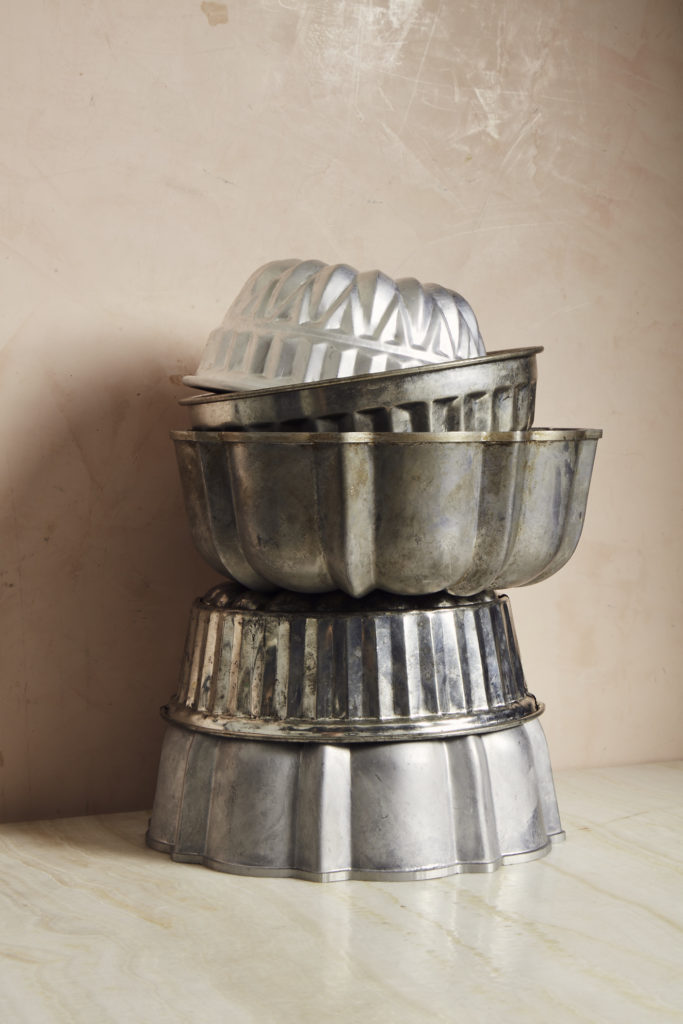Happy to have connected the dots with the folks at Martha Stewart Living and our friends at Johnson & Wales University. We’re big fans of having a resource like JWU here in Charlotte. Full disclosure: it doesn’t hurt that Executive Pastry Chef Rhonda Stewart is one of the most genuine folks you’d ever want to meet— who also happens to make some of the best cookies you’ve ever put in your face.
This article originally appeared on MarthaStewart.com.
When Should You Replace Your Favorite Bakeware—from Cookie Sheets and Cake Pans to Muffin Tins?

Baking Sheets
When it comes to the lifespan of baking sheets, whether to replace yours depends on the material the sheet is made from, how much it’s been used, and how it has been washed, says Stewart. This can vary between brands, but Stewart recommends you check your equipment yearly. For a non-stick baking sheet, when the surface becomes sticky or patchy, it’s time to buy new. “Lower quality sheet pans, even nonstick, can also warp or buckle if they are not rated for high baking temperatures,” she adds noting that if your budget allows investing in heavy gauge ceramic-coated pans, do so—clean-up will be a breeze.
If you’re a regular baker, opt for silicone baking mats to extend the life of your baking sheets. “We use silicone baking mats for cookies as they last a long time. We replace them every one to two years due to shredding of the edges, or rips that can form over time,” say pro bakers Ed and Natasha Tatton, who own BReD, an organic sourdough bread shop in Whistler, British Columbia. “If they are not scrubbed properly, you can end up with a thick layer of residue which you cannot remove, and may need to replace them more frequently so as not to contaminate new items.”
Cake Pans
“Cake pans are like sheet pans,” says Stewart. “The higher quality, heavier pans will last longer. Keeping them clean, by making sure no remnants of cake reside in the corners, will provide better results for the next use, and extend their life.” And when a cake pan bottom becomes convex, it’s definitely time to replace it, she notes.
Muffin Tins
If you bake muffins two to three times a month, a good quality pan should last at least four or five years, according to Stewart. “Muffin pans can be tricky to keep clean, especially the type with the seam around each muffin cup, she says. “Debris can build up in those crevices, weakening the non-stick feature.” Single piece-molded pans last much longer as they are usually a heavier gauge.
In general, if you see any rust on your muffin tins or your baked goods are sticking to the tins, it’s time to toss them. The Tattons love their muffin tins, even using them for baking cinnamon buns. “We take care to first let them drain and then towel dry them before stacking them,” they say. “If you do not dry the tins thoroughly, rust will form and the baked goods will stick to the tins, making it impossible to remove muffins in one piece.” Lining muffin tins with paper muffin cups will help your tins last longer, they add.
Glass Baking Dishes
Tangy lemon squares on deck? Consider this: “Glass baking dishes, used for anything from lemon squares to roasted potatoes, can last many years,” says Stewart. “Watch for chips or cracks in the glass and replace immediately. Even the smallest weakness can cause a glass pan to shatter.”
Tart Pans with Removable Bottoms and Cheesecake Pans
“If they are not stainless steel or non-stick, these types of pans can easily collect rust,” says Stewart. “Any indication of rust or corrosion signifies the need for a new pan.”
Tips for Preserving Bakeware
To extend the life of your bakeware, try the following tips from Stewart:
- Use parchment paper or foil to cover the surface when baking a sticky item.
- Wash your bakeware by hand, never in the dishwasher. To remove grease, soak and then use a soft cloth to wipe it away, instead of scrubbing (which can create scratches and cause rust to form).
- Store your bakeware neatly to eliminate the risk of scratches from other kitchen equipment. No balancing your Dutch oven or cookie sheets between two layers of pots and pans!
- Purchase high-quality, heavyweight, or commercial bakeware and take good care of it for best results. “Some of my equipment is 25 years old!” she says.
